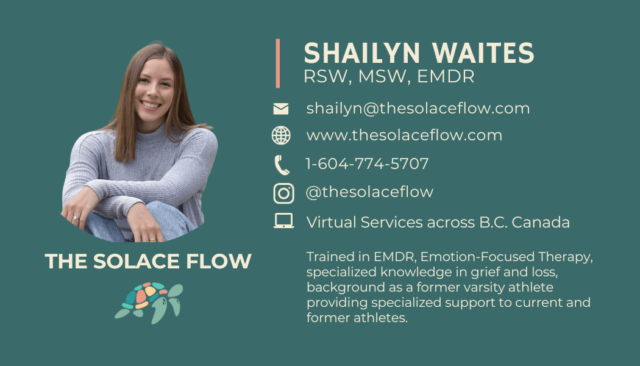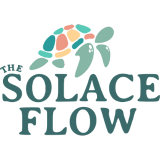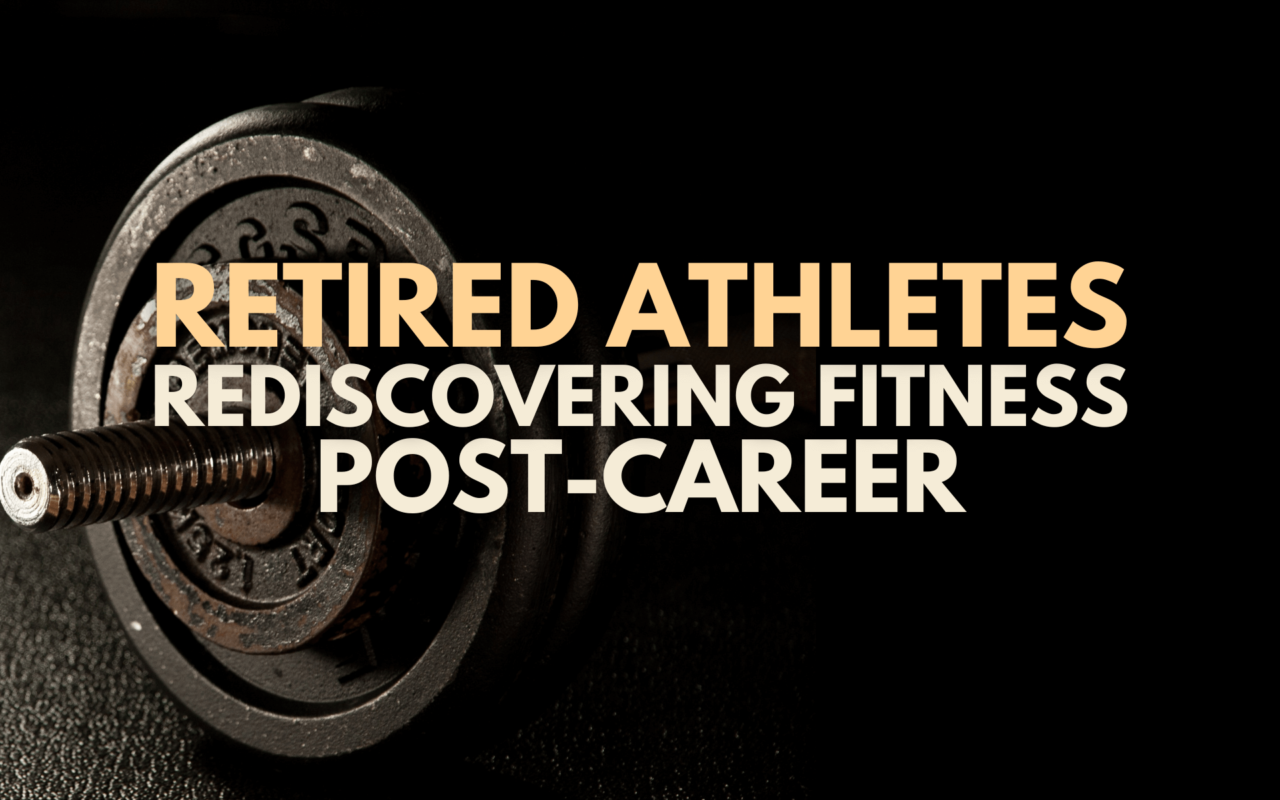A Therapist’s Guide for Retired Athletes Rediscovering Fitness Post-Career
Hey there! I’m Shailyn Waites – a therapist, former varsity athlete, and someone who truly gets the rollercoaster of emotions that comes with life after competitive sports. This blog is all about creating space to talk through these challenges, and today we’re diving into something close to my heart: what happens when retired athletes step back into the gym. Let’s break down why this is so tough and, most importantly, how we can navigate it together.
Why the Gym Feels Different After Sports
Let’s be real: going back to the gym after a sports career can feel like being dropped in the middle of nowhere with no idea where to go. The structure and purpose, that once defined your workouts have shifted, and for many retired athletes, this change is incredibly difficult to navigate. I remember the feeling of walking into a gym, staring at the equipment, and thinking, “now what?” That sense of being lost is something I’ve worked on with many clients, and it’s often the first step in rediscovering joy in movement.
The Gym Wilderness
1. Identity Shift:
When you’ve spent years – maybe even decades – seeing yourself as an athlete, that role shapes more than just your schedule or physical ability. It influences how you see yourself, how you relate to others, and even how you make choices day to day. So, when that chapter closes, it can feel like part of you has been left behind. It’s not just about stepping away from the sport; it’s about coming to terms with a whole new way of understanding who you are.
You might find yourself asking questions like, “If I’m not an athlete, then who am I?” And this question isn’t a simple one. It can echo through your mind in ways that go beyond the gym – it can touch your relationships, your goals, and even how you measure your own self-worth. The structure and validation that sports once provided become memories rather than a current, grounding reality, and that can leave a void that’s hard to fill.
If you’re feeling empty or unsure, know that it’s completely normal. Without the role of “athlete” guiding your way, there might be days when you feel aimless, as if you’re not fully grounded in who you are anymore. It’s okay to feel a bit lost right now. This isn’t a quick fix – it’s a process of rediscovery, one that takes time and patience as you explore what identity looks like in this new phase. You’re not alone in feeling this way; many athletes go through it, and it’s all part of reconnecting with yourself again.
2. Goal Ambiguity:
As an athlete, every training session had a purpose – there was always something driving you forward, whether it was preparing for a game, chasing a new personal record, or perfecting a skill. That purpose was your fuel, helping you push through even the toughest days. It gave your workouts meaning and filled you with a real sense of pride. But once you step away from competitive sports, that clear sense of purpose can feel like it just… disappears.
You might find yourself asking, “What am I working toward now?” Without that big goal to aim for, motivation can start to fade. Suddenly, going to the gym can feel pointless, almost frustrating. You might find yourself wondering why you’re even there. Maybe you even feel like your workouts aren’t “good enough” or that you’re not measuring up to the standards you once held for yourself. This lack of direction can lead to a mix of boredom and resentment toward the gym – a place that used to feel like a second home.
There’s often a deep ache for that feeling of progress and accomplishment, for the rush of knowing you’re working toward something bigger than yourself. Without that external motivation pushing you, it can feel like you’re floating, unsure of what to aim for or why it matters. And for many retired athletes, this becomes a mental roadblock, making each visit to the gym feel like a reminder of what’s been lost, rather than a new path to explore.
3. Social Isolation:
One of the things people don’t often talk about with competitive sports is the social bond it creates. Being part of a team isn’t just about showing up to play; it’s about having a group of people who get you on a deep level, who share your goals, and who are there for you through every win and every loss. Your teammates become more than just the people you play with – they’re your friends, mentors, and support system. You build real connections, ones that hold up through the intensity and passion of competition.
So, when that team environment disappears after retirement, it’s a real, deep loss. The gym, once a place full of familiar faces and shared goals, can suddenly feel empty. The laughter, the inside jokes, the push from your teammates, and the feeling that you’re all in it together – it’s not there anymore.
And the thing is, those bonds aren’t easy to recreate. Other people at the gym might not understand that part of you, that drive and mentality you carried as an athlete. Trying to connect with others outside of that team environment can feel awkward, maybe even discouraging. You might find yourself missing the effortless connection you had with your teammates and wondering if you’ll ever find that sense of belonging again in this new, individual setting.
How Individual Counselling Can Help:
Individual counselling for retired athletes isn’t just about setting new goals; it’s about reconnecting with what moves you – physically, mentally, and emotionally – and building a new relationship with the gym and with yourself. Let’s look at how therapy can help:
1. Self-Exploration:
- Leaving the sport isn’t just about hanging up your uniform; it’s about stepping away from an identity you held close for years. Who are you now, without that title? What parts of your identity are still there, and what parts feel unfamiliar? Therapy gives you a safe, supportive space to explore these questions at your own pace. Here, there’s no rush, no pressure to have all the answers. We’ll dig deep into what still feels meaningful to you, what parts of your athlete mindset you want to carry forward, and what new parts of yourself you’d like to discover. This process is about embracing a more open, flexible sense of who you are and finding a way to feel whole, even without the familiar label of “athlete.”
2. Goal Setting and Motivation:
- Motivation after retirement can feel like a whole new game, and it’s okay if you’re still figuring out what that looks like for you now. There’s no rulebook for this phase of life. Therapy is a place to get curious about what truly drives you in this moment. Is it the desire to stay healthy, a chance to learn something new, or simply the enjoyment of moving your body? We’ll work together to set goals that reflect who you are today, not who you were. These goals don’t have to be monumental – maybe they’re about feeling good, enjoying the process, or reconnecting with your body in a way that feels empowering and fulfilling. Whatever it is, we’ll build a new sense of purpose and motivation around goals that feel authentic and meaningful to you right now.
3. Processing the Loss and Moving Through It
- Leaving behind a sport that was once your world can feel like a genuine loss, almost like a grief that no one talks about. The structure, the competition, the goals – they filled your life with meaning and purpose. And when that’s gone, it’s normal to feel sadness, anger, or even emptiness. Therapy is a place where you can honour those feelings without judgment. It’s okay to miss what you had, to feel sadness when you see others competing or when you walk into the gym. We’ll work on processing these emotions rather than pushing them aside. You’ll learn how to sit with those feelings, understand them, and ultimately let them flow through you in a healthy way, so you’re not stuck in the past but rather moving forward with a deeper sense of peace.
- Together, we’ll explore how to release the weight of those losses, finding a way to integrate your past as an athlete into your present in a way that feels supportive rather than limiting. It’s not about “getting over” what you’ve lost but about learning to carry it with you in a way that allows you to grow. Processing this grief can free you to embrace new experiences and open yourself up to what’s possible beyond the world of competitive sport.
4. Recognizing and Unlearning Unhealthy Patterns from Sport
- For all the amazing things sports can bring, they can also leave us with some tough habits that may not serve us in the long run. Maybe you’re all too familiar with the cycle of pushing yourself until burnout, or maybe you’ve noticed that the standards of perfection you held in sports have trickled into other areas of life, creating constant pressure. Perhaps you developed rigid eating patterns or found yourself relying on external validation from coaches, fans, or teammates to feel valuable. Therapy is a safe place to look at these patterns without judgment and ask, “Are these habits helping me, or holding me back?”
- We’ll identify any habits rooted in disordered eating, perfectionism, or shame-based motivation, recognizing how these might have once helped you excel in sports but may now be standing in the way of your well-being. Together, we’ll work to unlearn these patterns, replacing them with healthier, more compassionate approaches that prioritize balance and self-acceptance. This process is about finding a new way to motivate yourself that doesn’t rely on guilt, external praise, or perfectionism but instead on a deep respect for yourself and your body. We’ll explore ways to redefine success, making room for joy, self-compassion, and a sustainable, fulfilling life beyond the pressure to perform.
- This journey won’t be about erasing who you were as an athlete but about embracing who you are becoming. Therapy is here to help you create a life that feels whole, balanced, and full – without needing to be “perfect.”
5. Building Resilience:
- Big changes like retirement come with new challenges, and it’s completely normal to feel overwhelmed at times. Therapy is a place to gather the tools you need to meet these challenges head-on. We’ll work on building coping strategies for any feelings of frustration, anxiety, or self-doubt that might come up. Maybe you’re feeling like you’re back at square one, or maybe gym days bring a wave of nostalgia or sadness. Therapy can help you process these emotions and develop skills that keep you grounded, even when the journey forward feels a bit uncertain. It’s about learning to weather the ups and downs with a sense of strength and adaptability.
6. Community Integration:
- The team atmosphere you once had isn’t gone forever – it’s just waiting to take a different shape. Finding a new community can take time, and it’s normal if that process feels daunting. Therapy can be a space where we brainstorm ways to reconnect with others, whether it’s joining a fitness class, exploring a group sport that’s more relaxed, or finding a hobby that introduces you to new people with shared interests. Together, we’ll redefine what “community” can look like in this new chapter, exploring ways to create a support network that feels genuine and fulfilling. It’s about finding that sense of belonging in a way that feels right for where you are now.
This journey is all about rebuilding a connection with yourself – body, mind, and soul – and therapy is here to walk with you every step of the way. The path forward might look different from your competitive days, but that doesn’t make it any less meaningful. Let’s rediscover what drives you, what excites you, and what truly makes you feel whole again.
Get Started Today:
Remember, this is a journey – one that’s full of discovery and growth. Your post-sport fitness story is just beginning, and with the right support, it can be a fulfilling one.
If you’re ready to explore counselling, I’d love to work with you.
- MUST be located in British Columbia or Ontario to start sessions residents: You can book a session here.
- Want help booking a FREE 15-minute consultation, email me at this email address: shailyn@thesolaceflow.com
Take the first step – your post-career journey doesn’t have to be a solo one.
Shailyn Waites, RSW, MSW, EMDR
The Solace Flow


